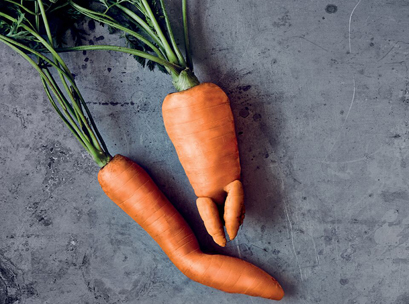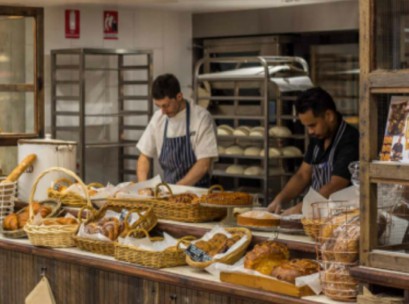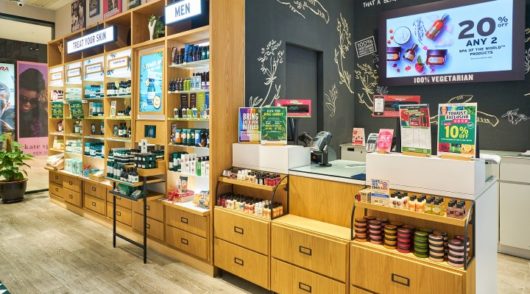 BIO: Tristan Harris is the co-CEO and director of buying and marketing at Harris Farm Markets.
BIO: Tristan Harris is the co-CEO and director of buying and marketing at Harris Farm Markets.
He has held various director roles at companies including PMA Australia and New Zealand, the NSW Dairy Industry Conference and Trilo-G International. Prior to Harris Farm, he served as the managing director of Cheeky Salads, a healthy quick service restaurant concept.
COMPANY PROFILE: David and Cathy Harris opened their first grocery store in Villawood in Western Sydney in 1971. The supermarket chain has grown to 22 stores today, all in New South Wales and heavily concentrated throughout Sydney, and employees over 1500 staff. The business remains family-owned and is run by family members Tristan, Angus and Luke [co-CEOs] and Catherine Harris [chairperson].
Inside Retail Weekly: How has the last 12 months been for the business?
Tristan Harris: There’s been some challenging times – probably more so than in the previous two years. We’ve had a couple of extremely good years and then the last 12 months has slowed down our growth a little bit. Consolidating a few stores has been part of the job over the past year.
Trading conditions have been generally okay, there was a bit of fruit and vegetable price deflation around earlier on, late last year. And then sometimes you question, how much is price deflation and how much is just competitive margin erosion? It’s very hard to pull the two apart sometimes. There was a period late last year that we think got a little bit harder on the bottom line and so you had to keep pushing to maintain sales volume and customer transaction numbers. And that can be a bit expensive, but other than that, it’s been a good year. Opened two stores, closed two stores, which inevitably puts us in a better position.
IRW: What would you pinpoint as the highlights?
TH: The store refurbishment at our Potts Point store. We ran a program to pull out as much unnecessary stuff as possible out of the retail area and therefore managed to expand the retail space quite significantly to deliver a really great, next generation store for customers in the area. That’s proven to be very successful and then we’ve had a similar store concept landed in Lindfield last month. It’s been a real winner – the customers have absolutely just raved to us about that store.
IRW: What kinds of things are they most happy about or receptive to?
TH: We’ve added a couple of things including some in-store dining options with flame roasted chickens and fresh salads plus other food offers. There is also a significantly expanded meat and in-store seafood offer plus concession bakeries in both stores. One of them is Bourke Street Bakery and the other is Infinity Bakery.
IRW: How have customers responded to the Drummoyne store? I recall it was quite a sizeable investment at the time of its launch a few years ago.
TH: Great guns. Drummoyne was the first of the new generation, every store that we’ve done since then has been along similar lines. Typically, we now look at slightly larger format stores than we previously did and try to include, in general, a couple of concessions in each store; getting best of breed operators and putting them alongside what we do. This formula has proven to be very, very successful. Customers love it, we love it. When shopping in the stores and fresh sourdough bread is coming out of the ovens at 2pm in the afternoon that’s still crispy and steaming – it’s just magic, hard to beat.
 IRW: Does that tie into that whole aspect retailers talk a lot about at the moment – enhancing the experience of physical retail?
IRW: Does that tie into that whole aspect retailers talk a lot about at the moment – enhancing the experience of physical retail?
TH: It very much does, but it can’t just be about the experience. We keep having to question ourselves about stuff that we’re doing – is there any of it which is going to be seen as gimmicky a fairly short period down the track? If so, we want to try and avoid that. And one of the great ways to avoid being gimmicky, is by concentrating on having a fantastic product offering in whatever it is that you’re doing.
If you were to go and get a typical brand name product and put it in an incredible display – that’s not going to do a lot for you. That’s going to look very dated, within a very short period of time. If you have a product which is next level, in terms of the quality or the way that it’s served – then putting that into a store is going to set the new benchmark for our other stores and then other retailers to try and follow.
IRW: What are your general views on the grocery sector at the moment?
TH: You mean all of the talk about how it’s brutal out there? If you don’t have something that really appeals to customers, it’s always going to be really tough in grocery. Always. You go back to the time that Franklins was on song, and they were killing it. Then they stopped having something that was new and different and I’m not sure as I wasn’t around at the time, but I understand operationally it started to struggle.
Then you came into the period where Woolworths charged ahead and started to lose their differentiation and Coles started to surge ahead. Now you’re seeing IGA stores really copping a battering. They haven’t got there own, ‘here’s the next level’, here is something that is really better than what the par level is.
So I think you’re seeing stores that are not differentiated and excelling at something, are finding it really tough. Aldi is excelling on price. Right now, Coles is suffering for not having changed much recently and nothing to really excel on. Woolworths is making a big comeback and are doing some of that on price and from what I hear on the supplier management and supply chain. Where we differentiate is, we do a great fresh offer and so for us, the market is not very tough compared to where it was.
IRW: There’s a lot of media hype about the toughness of the market – what are some those tough aspects that Harris Farm might be cognisant of?
TH: I think people are probably getting more used to buying on promotion, so you’re seeing a big swing and then you get a player like Aldi come in and say, ‘right, it’s all about price’. Everyone starts questioning, ‘what they have been paying and what should they be paying?’
In particular, if grocery is a significant part of your disposable income, you’re really going to question every single article and look at it in terms of what you should be paying and where you should be buying it from. That’s not true of the entire market. But there is more of a focus on price now, than there was 12 years ago when Aldi came in.
The tough parts of retail in general are, in a way, being transposed onto the grocery sector. Now if you’re providing product into the grocery sector and just had Coles and Woolies beating the hell out of each other and suppliers – in order to be able to hold that differentiation against each other and against Aldi – then yes, it will have been really tough.
As a retailer, I don’t think it’s been so tough, it’s more a matter of, do you have a model and is that model well-established and is your strategy right? Are you targeting an appropriate set of customers with an appropriate offer? Do you do something better for that set of customers than the competition does? If you do, you’re sweet. If you don’t, you’re buggered.
IRW: When it comes to the prospect of more international entrants, what do you think the impact of potentially Kaufland or Amazon Fresh launching on the market will be?
TH: I would never ever want to underestimate a player like Amazon. They are an absolute force to be reckoned with. The fact that they don’t seem to need to make a profit – they just want to own the market – that obviously has some threat to it. Fresh food retailing is not that easy. Amazon bought Wholefoods, they’re not doing much with it yet. I imagine they probably have something transformational in the pipeline. I’m not sure how ready they are to really launch Fresh in this market.
So we are a little bit insulated for the meantime. There’s definitely risk there and it’s something we continue to assess. But we are relatively insulated there and from someone like Lidl or Kaufland.
There are other retailers and I don’t want to say there names so they get the idea, but there are other retailers in the world that we as retailers would be much more concerned about coming. Now those guys [Kaufland and Amazon] come in, they are going to take a bite out of Aldi, Coles, Woolies and Metcash. There’s a lot of retailers that have something to lose. It would need to be retailers that are more in line with what we do for us to be more concerned about it.
IRW: Is there a particular type of Harris Farm customer?
TH: We serve about 250,000 customers a week. They are as typical as the areas in which they shop. Our stores are in a relatively small cluster in the eastern half of Sydney. As homogeneous as that group is, as homogeneous our customers are. Yes, we can say that it’s a 42-year old female with three kids – yes we skew towards more female, slightly older customers, but typically the difference between a main grocery buyer at Coles and Woolies in our areas and our customers is very small.
 IRW: What are expansion plans, interstate or even abroad?
IRW: What are expansion plans, interstate or even abroad?
TH: Interstate is definitely something on the cards. Fortunately we don’t have to report quarterlies – however what we do have is our name above the door and our entire family assets – so we need to get it 100 per cent right. Going interstate is a pretty significant move, requires quite a bit of capital, it’s got its own set of risks including we don’t understand the market as well and our supply chains are not set up.
While we will do expansion, we aren’t jumping to do it in any great hurry. With regards to overseas, there is always the temptation to look at it because there’s some markets over there that we just know that we could serve really well. However if it’s difficult to get down to Melbourne in an hour and a half flight, it’s really bloody difficult to get up to Asia or across to New Zealand. The risk gets multiplied significantly if you look at those external markets. We do export product into a number of Asian countries. We’ve got an exporting division and we do a significant volume into some countries on some products and are satisfied with that for now.
IRW: When it comes to exporting and expansion, how difficult are supply chain operations for a company like Harris Farm, who focus on fresh food?
TH: That’s very dependent on where you’re looking externally. Let’s say we’re just talking about going to Victoria or Queensland, we would need to find ways to replicate some of the stuff that we do locally, because just having a 12 hour shipping time means that it’s no longer appropriate. There’s a lot of stuff that we have to do ourselves because we can’t get a supplier to operate within the parameters that we think are important for freshness.
So for example, I won’t let any of our team start production of some of our fresh articles like yoghurts and salads or freshly squeezed juices before midnight of the day that they’re going to be sold. If you try and get somebody that’s going to be able to produce it and deliver it into our DC on the day that it’s going to be produced, suddenly they go, “that is a whole lot more complexity” so up goes the price.
And so we end up investing in some of that stuff and produce ourselves. Obviously we would need to do that locally in a new market. Equally, when you start to look at products like bread, we don’t do that ourselves by and large, that’s all supply-driven, so we would need to go and establish the appropriate supply in the local market wherever we were.
The good thing is, there’s often a really good set of local suppliers in both Brisbane and Melbourne and there’s a bunch of really good suppliers who would love the opportunity for a smaller chain style operation.
So if someone like us could go and open 10 stores, a single customer that they could serve through 10 stores in good volume – that would be really advantageous to their business. A lot of those people are looking for the type of business that can move a lot of their product. It’s certainly not impossible.
IRW: How does Harris Farm view their digital strategy?.
TH: Digital has de facto won over a lot of the marketing, in no small part because it’s so easy to track. If you can find a way of tracking what happened on television – I’m pretty sure that television gives you very good bang for your buck, but it’s very hard to measure.
Whereas you put it on Facebook and you can say, right I know that it cost me X dollars to get a conversion, I know that my conversion earns me Y dollars, so I can afford for X to be up to the value of Y and then just keep spending on and driving it up. We do a lot of work in Facebook, but we are still a relatively small player in that picture overall. And so we end up spending more on TV, just because in the regional areas, TV is still a sensational driver.
With regards to online shopping, we’ve been doing it for around seven years now. We are piloting a dark store offer at the moment and it’s a fast growing part of our business, where we are probably over-indexed in terms of what we’re doing as a percentage of our business.
It’s a lot easier to grow something like online when you’re a smaller business. But compared to the major chains, we are probably over-indexed in that and we are really excited about where it can go. But there is a hell of a lot of change still to happen in online retail and very unclear what that direction will be, but you just know that there is still too much cost and inefficiency built into it to be the model that people settle on.
And that obviously means disruptors obviously have a really good opportunity to come in and work in that space hence never wanting to underestimate someone like Amazon because they could come in and disrupt it completely.
IRW: On the sustainability side, how important is it to a company like Harris Farm and how do consumers respond to any initiatives?
TH: Very important to Harris Farm. Five years ago we did a program where we tried to reduce plastic bag usage and donated 5 cents for everyone that didn’t use a plastic bag to Clean Up Australia and asked people to use boxes. And that reduced our plastic bag usage significantly at the time. Over time, it gradually waned in people’s interest. We decided that we were going to try and re-establish that campaign – it’s very difficult to go out and say ‘we are just going to stop doing plastic bags altogether’. Because there is a significant number of customers that say well it’s my choice, not yours. And so it’s very hard to do on your own.
We actually approached both Coles and Woolworths and said we think that we should talk to the government and as an industry say whether we can ban bags, because it’s good for the environment and probably good for us as retailers as well – and we didn’t hear back from either of those guys.
Then suddenly Woolworths came out in the press and said we are going to do it next year. Fortunately by that stage we already had a campaign in market as we had just decided we’re going to have to go out and do this ourselves.
We were doing the donations to Clean Up Australia and that meant we could switch immediately and within a couple of months had turned off all plastic bags.
I believe the major chains are going to start with half a dozen stores this week – where as we haven’t had a plastic bag at the register for the last four months. Customers love it, by and large. Some customers like to reuse their bags, and it will take some time for those customers to get used to not having plastic bags. Eventually no one will question it.
We did the imperfect picks campaign about rescuing food that will go to waste, I think it’s a really important problem to be addressed in the industry, country and world in general. That has been fantastically well-received. So we get a very good vibe from our customers on these things. Obviously hard to measure in terms of what’s the financial impact.
Does the good vibe translate into more shopping visits and how long does that halo effect last for? Not entirely sure but we find that for us, it’s not so much about that. We do it more because we are a family that owns a business. Where you’ve got a big listed organisation in particular, their responsibility is to their shareholders and the return of capital to investors.
The return to our shareholders needs to be in line with the family values and so if the family addresses something that’s environmentally irresponsible, then just doing in and of itself is a return to our shareholders. We know that we’ve had a positive impact in the community or on the environment, that is valuable to us personally so therefore we’re going to do that sort of initiative. It’s just fortunate that in the markets we trade in, that is pretty similar to the values held by a lot of the families around us, therefore it works from a commercial point of view to some extent.
IRW: What initiatives are on the cards for the company in the short and long-term?
TH: We’ve been on a journey for the last five years moving out of stores that no longer make sense for us. Because we are a company with 40 years of history, there were some stores that used to be absolute killers that are no longer absolute killers, the market’s changed around us and we haven’t changed in the same direction as the market in that area. There’s others that have become better suited to what we’re able and capable of doing. There’s only a few stores left within the chain that are no longer where we are going to be in the future.
But there is a couple of good opportunities coming up in terms of where we can be in the future. We are definitely going to open two stores probably by the end of the financial year, which will be exciting for us. Then a couple of renovations. Now that we are out of most of the stores that we wanted to be out of, we’ve got new stores coming online and also have our existing stores that we can bring up to our new model. All of which is really exciting because the impact we have when we flick from an old store to a new store is really quite remarkable.





